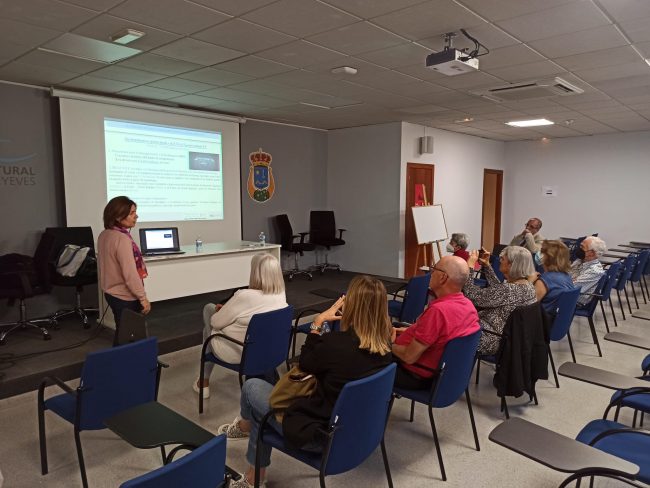Unisocietat Requena debates on Next Generation funds
#TrainingAVAF
The Valencian Anti-Fraud Agency participated on May 26, 2022, in the Unisocietat training activity of the University of Valencia organized in Requena to discuss the control of the Next Generation.
This activity is carried out within the framework of the collaboration agreement between the Agency and the University of Valencia and aims to raise social awareness of collective ethics and the prevention of fraud and corruption in all areas of public life throughout the Valencian territory.
The conference was given by the professor of Administrative Law at the University of Valencia, Reyes Marzal Raga, who delved into the Next Generation European mechanism or European Recovery Fund created to overcome the consequences of the Covid-19 health crisis. In this sense, it must be remembered that Spain, through Royal Decree Law 36/2020, of December 30, approved urgent measures for the modernization of the Public Administration and for the execution of the Recovery, Transformation and Resilience Plan.
During the conference, Professor Marzal analyzed all aspects of the new regulatory framework, and the need to articulate adequate control mechanisms to avoid cases of fraud or corruption.
The representative of the Agency, Anselm Bodoque, none of the Training Service, focused the speech by explaining the functions and independence of the AVAF, as well as talking about the complaint’s mailbox and the protection of people who, in the face of potential cases, alert about corruption. Likewise, he recalled that the annual economic costs of corruption and fraud in Spain are, according to the IMF, 60,000 million euros, an amount that multiplies by four the annual contributions that Spain will receive for the Next Generation funds in the next five years.
The conference was attended by 17 people in person and generated a debate on the difficulties of reporting based on fear, ignorance and the effects of reporting. The interventions of the attendees insisted on the value of the quality of public services, as well as on the social and economic costs of corruption.



